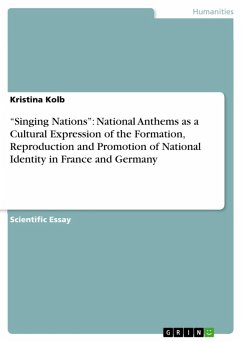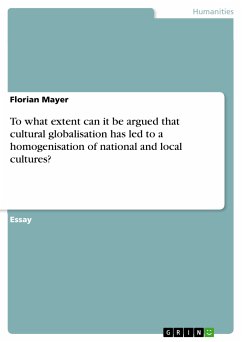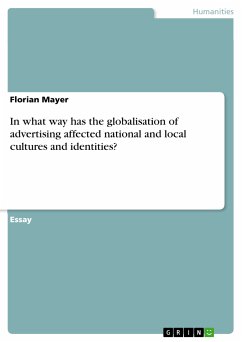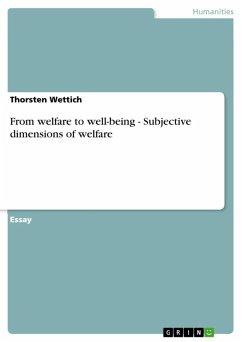Essay from the year 2003 in the subject Cultural Studies - European Studies, grade: 86, University of Leeds (Trinity & All Saints College), course: National and Global Culture, language: English, abstract: For at least the last two-and-a-half decades, critical theory in the humanities and social sciences has been concerned, amongst other things, with exploring the myths and fictions of nationalist thought. Instead of the coherence of 'imagined communities', or even the unity of the individual subject, it emphasises the multiple, shifting, fragmented and often contradictory modes of identification that characterise what are referred to variously as the 'postmodern', 'postcolonial', 'posthistorical' or 'postideological' conditions of the contemporary world. Yet recent history, specifically the decade following the end of the Cold War, has seen a rise in nationalist sentiments and struggles, and numerous wars have been fought over inclusive and exclusive conceptions of identity. Far from disappearing, arguments about national belonging and cultural difference have had increased prominence in the 1990s. In Europe, the reunified Germany, which had been at the centre of the ideological struggle between the East and the West during the Cold War has seen a resurgence of nationalism often manifested in aggression and discrimination against minorities. Contemporary bias crime in Germany increased significantly after reunification and remained at a relatively high, though fluctuating, level for the past decade. As a consequence, Germany today is not only struggling to come to terms with its National-Socialist past but also with the recent uprisings in nationalism and xenophobia and competing demands of difference and unity as it seeks to reconstruct itself in more humane and equitable ways. These issues are no less relevant today as we approach the end of 2007 - one year after a celebrated World Cup event, were Germany proclaimed "Zu Gast bei Freunden" - a year which saw racist incidents against minorities at so-called "Volksfesten" and other places erupt once again. In the following pages an attempt has been made to examine the causes and roots of the lasting crisis in German society by putting forward economic, psychological, political, historical, and cultural explanations.
Dieser Download kann aus rechtlichen Gründen nur mit Rechnungsadresse in A, B, BG, CY, CZ, D, DK, EW, E, FIN, F, GR, HR, H, IRL, I, LT, L, LR, M, NL, PL, P, R, S, SLO, SK ausgeliefert werden.









